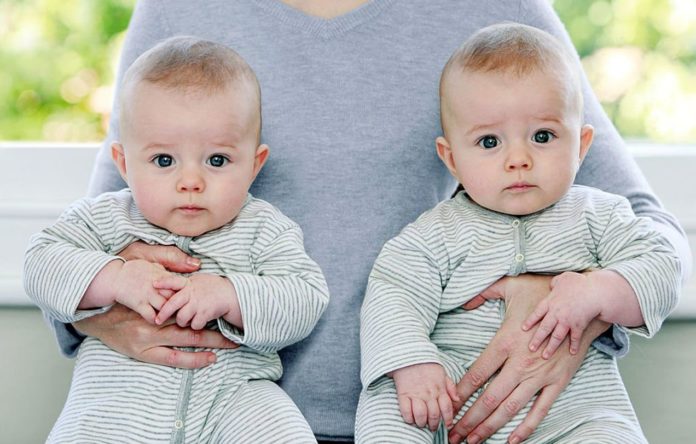Are twins a sign of greater fertility in a woman? While prior research suggested they were, an international team of scientists conducted a rigorous review of over 100,000 births from pre-industrial Europe and found they were not. The study’s findings have been published in the journal Nature Communications.
Twinning occurs in approximately 1–3 percent of all human births. Despite being associated with a substantially higher risk of natal and postnatal health concerns for both the mother and her children than in single pregnancies, twinning is observed in all populations.
Given these risks, it seems like natural selection has kept twins from becoming more common as the world has changed. But then, why hasn’t evolution by natural selection stopped twins from being born?
One popular theory is that the survival risks associated with twinning are partially masked by natural selection since twinning is associated with higher fertility. Twinning is an indication of high fertility because women who are more fertile than usual are more likely to release more than one egg when they ovulate. Many researchers have looked at demographic data and found results that support this viewpoint.
However, this new analysis demonstrates that previous assessments were inaccurate.
“Previous studies are problematic,” says Alexandre Courtiol of Germany’s Leibniz Institute for Zoo and Wildlife Research, “because they cannot tell us whether mothers with twins give birth more often because they are especially fertile, or because giving birth more often increases the chance that one of these births is to twins.”
The new findings reveal that twinners are not particularly fertile. Previous research had muddled causation and effect.
“If a mother gives birth more often, it is more likely that one of these births is to twins – just like you are more likely to win if you buy more lottery tickets, or to be in a car accident if you drive a lot,” says first author Ian Rickard of Durham University in the United Kingdom.
When the “lottery ticket effect” was factored in, the authors discovered that moms who were more likely to deliver twins gave birth less frequently, contradicting earlier findings.
To re-examine the link between having twins and being fertile, a group of 14 scientists from around the world combined large sets of birth data from pre-industrial Finland, Sweden, Norway, Germany, and Switzerland.
“All these data originate from old parish records that have been meticulously digitised and transcribed,” says co-author Virpi Lummaa of the University of Turku in Finland.
To avoid the statistical trap that plagued former studies, we also had to deploy efficient and carefully calibrated statistical procedures,” says co-author François Rousset of the Institut des Sciences de l’Evolution in Montpellier, France.
Finding out what affects the link between having twins and being able to have more children is not only interesting from an academic point of view, but also important for public health. Mothers with and without twins have been compared in biological studies seeking ways to boost female fertility. Such study designs overlook the myriad of factors determining how often a woman gives birth, which will conceal any true variations in physiology between moms with and without twins, according to co-author Erik Postma of the University of Exeter in the United Kingdom. In other words, comparing groups of moms with twins against groups of mothers without twins may hide or create the illusion of twinning and fertility genes where they exist.
“There is still much we do not understand about twinning, but our study suggests that twinning has not been eliminated by natural selection for two reasons,” adds Courtiol.
“First, twinning is a consequence of double ovulation, which compensates for reproductive ageing and benefits all but the youngest of mothers. Second, when the risk of early mortality of twins is not too high, twinning is associated with larger family sizes although women with twins give birth less often. This is because twin births bring two offspring rather than one.”
Image Credit: Getty
You were reading: New Research Says Moms of Twins Are Lucky, Not More Fertile
